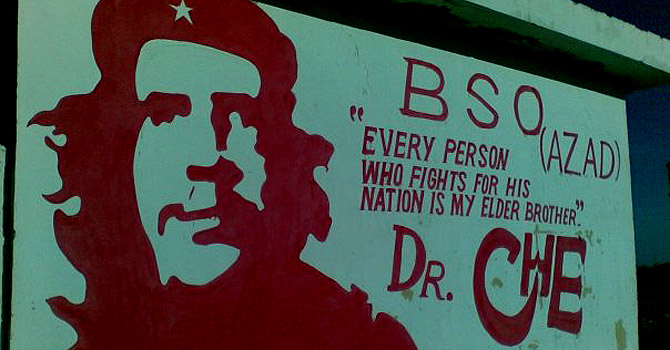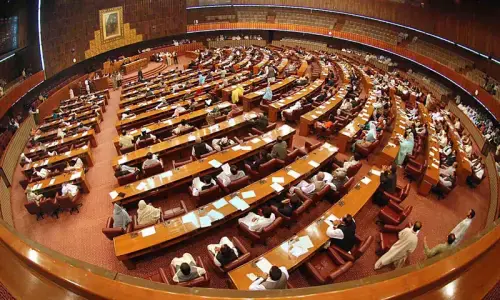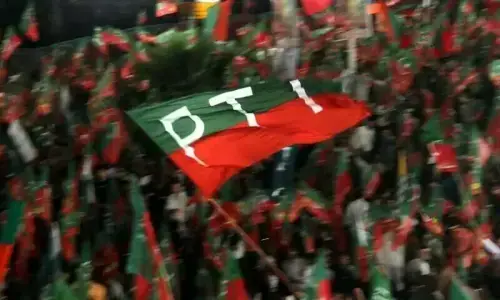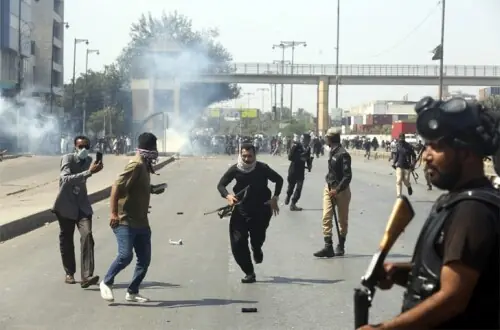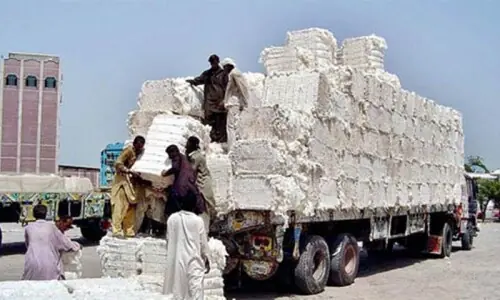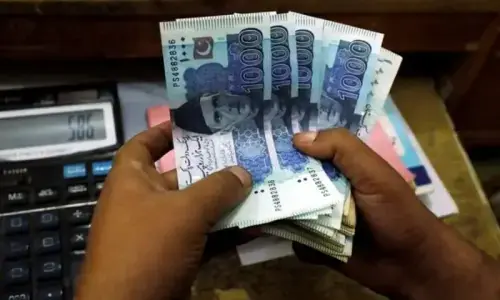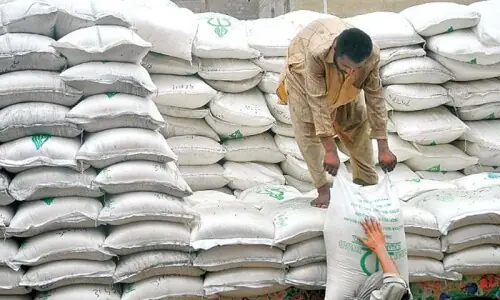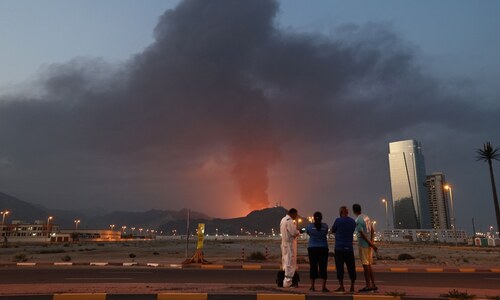QUETTA: The state sees them as unruly men serving power-hungry sardars, but the six 20-something Baloch Student Organisation-Azad (BSO-Azad) members sitting cross-legged on the floor of their dorm room come across as more diligent than unruly, and more revolutionary than submissive.
As active sympathisers of a rebellion calling for outright independence, they embody a new kind of Baloch freedom fighter – or sarmachar.
And a new kind of victim of the kill-and-dump policy practised, they claim, by the Frontier Corps (FC) and intelligence agencies.
These six young men are urbanised, middle-class, educated, and typically allied as equals rather than serving as underlings to the separatist Bugti and Marri sardars of Balochistan.
“We are united in our call for an independent Balochistan. And we have sacrificed our lives for our cause. Ninety-five members of BSO-Azad have been picked up, tortured and brutally murdered by the establishment. Many of them were students at educational institutions like Balochistan University,” says Khalid, an office-holder in BSO-Azad.
Malik Siraj Akbar, the editor of the online newspaper, Baloch Hal, which has been banned in Pakistan, agrees. “Today's Baloch movement is headed not solely by [...] tribal chiefs, but [by] educated middle class youth,” says Malik in the introduction to his book, “The Redefined Dimensions of the Baloch Nationalist Movement”.
“Women and children, sardars and the common man... We stand together,” says Mansoor, another BSO-Azad office-holder, before handing over a pamphlet written by BSO-Azad's female wing. Malik agrees, pinpointing that women have been at the forefront of the missing persons’ campaign.
The new middle class
Abdul Qadeer Baloch, the Vice Chairman of the Voice for Baloch Missing Persons (VBMP) points out that most sardars, like “the illustrious Chief Minister Nawab Aslam Raisani” are allied with the establishment.
“With the exception of the Bugtis and Marris, most popular leaders, like Mir Abdul Nabi Bangulzai, Wahid Qambar Baloch and Dr Allah Nazar are all middle class,” says Qadeer.
“Dr Allah Nazar is a graduate-turned-freedom-fighter and one of the commanders in the Baloch Liberation Army (BLA). At BSO-Azad, we see him as our leader. He used to be an ordinary medical student at Bolan Medical College, who topped his class and started our group,” says Khalid.
Malik points out that the group blamed for most attacks against the security forces – Baloch Liberation Army (BLA) – is not owned by any one sardar. “No nationalist leader, including Marri, Bugti and Mengal, accept responsibility for leading [the Baloch Liberation Army (BLA)],” even though all of them admit that they are “backing the outfit's activities”.
According to Malik, middle-class dominance results in freedom fighters using more than guns to fight state dominance. The new fighter uses “Facebook, Twitter and YouTube to highlight their plight on the internet via online activism”.
That is why the “ruling establishment” is “equally engaged in a full-fledged battle with the Baloch media”, blocking numerous sites including Malik's own Baloch Hal.
Geography of resistance
Qadeer points out that the shift in the nationalist movement comes from the increased involvement of areas where neither sardars nor tribal structures are particularly dominant.
“Many of our leaders hail from Mekran, one of the hotbeds of the insurgency. Mekran is known for the complete lack of the hierarchical structures people typically refer to when characterising and generalising the Baloch,” says Qadeer.
Harris Gazdar at Karachi's Collective for Social Science Research agrees. Gazdar, who has looked at social structures in Balochistan, says: “There is no significant presence of tribal social organisations or sardari [leadership] in Mekran – the districts of Kech, Panjgur and Gwadar.These districts are relatively urbanised, and people are well-connected to Karachi and Gulf cities. To the extent that there are actions in these districts, we can say that at least some part of the insurgency may not [be] led by sardars. […] Sardars may be important [in other areas.] [But] there does not seem to be [an] insurgency or [any] FC action in many of the sardar-dominated areas. We do read reports of other forms of violence in those areas - such as kidnapping etc. - but not [any violence] directly related to [the] insurgency.”
An FC source in Quetta, who agrees to speak on condition of anonymity, confirms that the FC is “particularly concerned” about Mekran, and has concentrated much of its 50,000 troops in Balochistan's southwestern areas. “Panjgur, Turbat, Kech district in general. That's where these groups operate. That is where we have a lot of our boys,” the source says.
“Even areas south of Quetta, like Mastung or Sibi, are seeing a significant decrease in sardari influence,” says Qadeer. Malik points out that separatist sardars maintain their position because of their commitment to the cause. Nawabzada Brahamdagh Bugti once said to Malik that “if he compromises with Islamabad then his own supporters will kill him”.
Back at the dorm room, Mansoor, Khalid and their four fellow BSO-Azad members wrap up our meeting with stories about their run-ins with the FC.
“They've broken into my room twice. I don't understand why a paramilitary outfit needs to be entering campuses, or be anywhere close to where we're studying,” says Wahid, Khalid's friend.
“I've been asked to recite the kalima or dua qunoot, as if I'm not a Muslim. I think they've been told by their officers that we're some foreign-funded insurgents, who follow sardars blindly. We're not. We've just had enough with a state that does little to support us, and kills our brothers and our sisters,” Khalid finishes.
“We have no hope for the so-called high-level committee that the government set up yesterday. Stop abducting our sons and daughters, and then we can talk. Until then, this is just another committee in a long line of useless initiatives set up by the government,” says Qadeer.— Some of the names have been changed to protect identities

